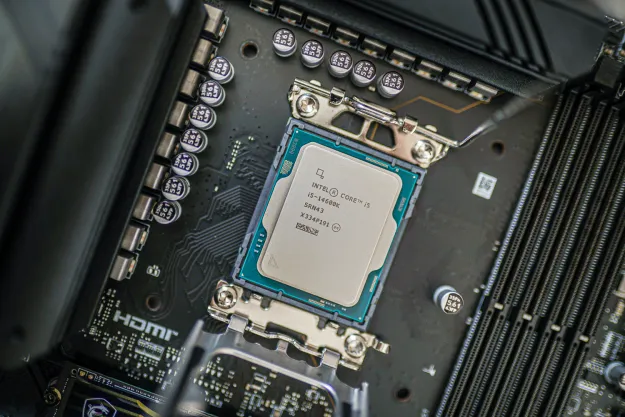Your CPU is an important component in your PC, so like graphics cards, it should probably have its own CPU drivers, right? Not in this case. While there are drivers that are called chipset drivers, and technically there is microcode that runs on the chips themselves, you don’t need to update the drivers for your CPU.
There are plenty of drivers you should keep on top of, but the processor is not one of them.
Do CPUs have drivers?

In general, no. You don’t need to install drivers for a new CPU; your Ryzen or Intel CPU doesn’t have its own drivers to keep updated. There aren’t even security improvements that you can make by updating your CPU drivers, because they simply aren’t a thing.
What you do need to consider, and what some people may mean when they say CPU drivers, is chipset drivers. These are related to the motherboard and are used to integrate all the components together and use all of your system’s features. Some CPUs can have onboard graphics drivers associated with them, but the processor itself does not need drivers.
Processors that have onboard graphics utilize drivers to render your desktop and any games you play. Intel’s latest 13th and 14th generations of CPUs feature onboard graphics as long as they don’t have an “F” designation at the end of the model name. For example, there are two versions of Intel’s top Core i9 CPU, the i9-14900KF and the i9-14900K, but the difference here is the K model features onboard graphics, whereas the KF model does not. AMD, on the other hand, has its Accelerated Processing Unit (APU) chips, which also have onboard graphics, but those are restricted to the G-series of chips.
Where most previous generations of Ryzen CPUs didn’t have onboard graphics, though, AMD’s Ryzen 7000 series does feature an integrated GPU as well.
Do you need to update CPU drivers?

While there’s some rationality behind installing CPU drivers when your processor has integrated graphics, it’s far from necessary. Keeping your chipset drivers updated is much more important, as are up-to-date graphics drivers if you have a dedicated graphics card.
AMD’s newer chipset drivers include a neat feature called AMD Ryzen Power Plans. The power plan gives you the option to make your Ryzen CPU run in high-performance mode or balanced mode. If you’re using an AMD CPU, then the Ryzen Power Plan is the driver you’re looking for when it comes to increasing or overall balancing performance without overclocking.
Intel, on the other hand, doesn’t really have anything besides chipset drivers for its CPUs with onboard graphics. These chipset drivers don’t affect the performance of the processors; they only affect the graphical capabilities.
Editors' Recommendations
- Nice try, Intel, but AMD 3D V-Cache chips still win
- Intel just launched the ‘world’s fastest’ CPU
- The best processors in 2024: AMD and Intel CPUs duke it out
- AMD Zen 5: Everything we know about AMD’s next-gen CPUs
- A major era in Intel chip technology may be coming to an end





